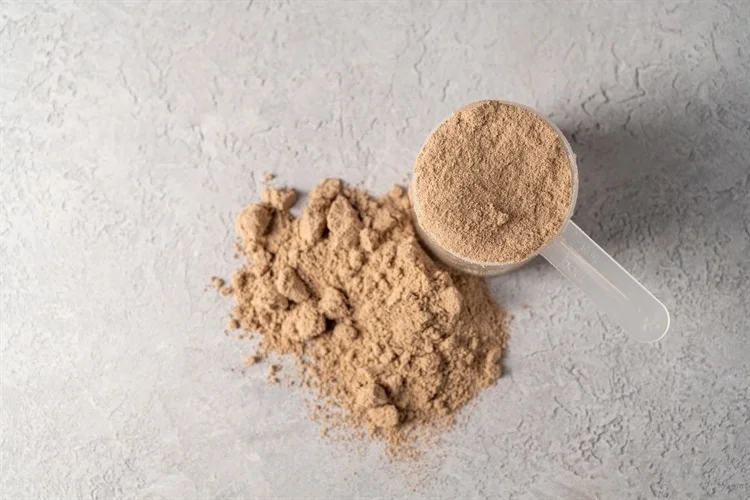New research highlights hidden health risks in foods marketed with protein claims.
June 16, 2024 – Scientists at Miguel Hernández University in Spain have found that protein-packed foods, often perceived as healthier options, may not be as nutritious as consumers believe. Their study, published in the journal Nutrients, analyzed the nutrient content and healthiness of processed foods with protein claims in the Spanish market. The findings reveal concerning nutritional trends that challenge the widespread perception of protein-fortified foods as inherently healthy.
Background: The Rise of Protein Claims
Protein-fortified foods and supplements have surged in popularity worldwide. Many consumers associate protein-rich products with health benefits, such as muscle building, improved longevity, and overall well-being. According to recent surveys, the number of newly launched foods and beverages with protein claims grew at a compound annual rate of 26% in Europe and 12% in Australia between 2017 and 2022.
Globally, about 17% of consumers now seek out high-protein foods despite their higher costs. However, the study cautions that this health halo surrounding protein claims may be misleading, as many of these products also contain unhealthy ingredients, including sugar, salt, saturated fats, and excessive calories.
Key Findings from the Study
The researchers analyzed 4,325 processed foods across 12 categories using data from the Spanish Food Database (BADALI). Of these, 13% carried protein claims, but their nutritional quality raised concerns.
Prevalence and Protein Content
- Protein claims were most common in plant-based meat analogs (68.2%), protein bars (35.3%), and yogurt or dairy dessert substitutes (21.3%). No protein claims were found in biscuits or fruit drinks.
- Approximately 60.4% of products with protein claims had fortified proteins, predominantly in bars and plant-based meat analogs (90%). In contrast, milk substitutes and yogurt alternatives had the lowest fortification rates (7.9% and 3.3%, respectively).
- Plant proteins (41.7%) were more frequently added than animal proteins (25.9%). Gluten, soy, and milk proteins were the most common sources.
Notably, protein-fortified foods contained significantly higher protein levels than their non-protein counterparts. For example:
- Bars and milk substitutes with protein claims had up to four times more protein.
- Plant-based meat analogs with protein claims contained more than twice the protein of those without claims.
Hidden Nutrients and Health Concerns
Despite their higher protein content, foods with protein claims often contained unhealthy nutrients:
- Protein bars had 82% less sugar and lower carbohydrates but contained 48% more saturated fat.
- Milk substitutes with protein claims had lower sugar and carbohydrates but higher total fat.
- Plant-based meat analogs had lower carbohydrates but often included excessive sodium and unhealthy fats.
The study evaluated the nutritional quality of these products using the Pan American Health Organization and World Health Organization nutrient profiling models. Alarmingly, 90.8% of foods with protein claims were classified as “less healthy.” Key findings include:
- Over 50% of protein-claimed products had high sodium and fat content, a major concern given sodium’s link to cardiovascular diseases.
- One in four items contained high free sugar or saturated fat, and one in five included artificial sweeteners.
- Compared to foods without protein claims, those with claims had 17% more products classified as “less healthy.”
The Health Halo Effect
The study’s authors emphasize the dangers of the “health halo” effect created by protein claims. Foods marketed as high-protein are often perceived as nutritious, yet the study demonstrates that many such products contain unhealthy components. Regular consumption of these foods could contribute to obesity, cardiovascular disease, and other health risks.
“Our findings highlight the need for consumers to look beyond the protein claims on packaging and carefully evaluate nutrition labels,” the authors wrote. “While protein is important, it does not automatically make a food healthy.”
Study Significance
With one in seven foods on the Spanish market carrying protein claims, this research provides crucial insights into consumer habits and marketing trends. The findings suggest that consumers need to be wary of misleading health perceptions and make informed choices.
The study underscores the importance of checking ingredient lists and nutrient declarations to assess overall healthiness, rather than relying solely on marketing claims. As demand for protein-rich foods continues to grow, consumers must recognize that “high-protein” does not always mean “healthy.”
Journal Reference: Beltrá, M. 2024. Are Foods with Protein Claims Healthy? A Study of the Spanish Market. Nutrients. https://www.mdpi.com/2072-6643/16/24/4281












